PENGUIN CLASSICS
Published by the Penguin Group
Penguin Books Ltd, 80 Strand, London WC2R 0RL , England
Penguin Group (USA) Inc., 375 Hudson Street, New York, New York 10014, USA
Penguin Group (Canada), 90 Eglinton Avenue East, Suite 700, Toronto, Ontario, Canada M4P 2Y3 (a division of Pearson Penguin Canada Inc.)
Penguin Ireland, 25 St Stephens Green, Dublin 2, Ireland (a division of Penguin Books Ltd)
Penguin Group (Australia), 707 Collins Street, Melbourne, Victoria 3008, Australia (a division of Pearson Australia Group Pty Ltd)
Penguin Books India Pvt Ltd, 11 Community Centre, Panchsheel Park, New Delhi 110 017, India
Penguin Group (NZ), 67 Apollo Drive, Rosedale, Auckland 0632, New Zealand (a division of Pearson New Zealand Ltd)
Penguin Books (South Africa) (Pty) Ltd, Block D, Rosebank Office Park, 181 Jan Smuts Avenue, Parktown North, Gauteng 2193, South Africa
Penguin Books Ltd, Registered Offices: 80 Strand, London WC2R 0RL , England
www.penguin.com
Translation first published in a bilingual edition by The Chinese University Press 2010
This revised translation, with additional editorial material, first published in Great Britain by Penguin Classics 2013
Translation copyright Ian Johnston, 2010
Editorial material copyright Ian Johnston, 2013
Cover: By the Lake (Hubian), 1998, woodcut by Li Yitai (Photograph Bridgeman Art Library)
All rights reserved
The moral right of the translator and author of the editorial material has been asserted
Typeset by Jouve (UK), Milton Keynes
ISBN: 978-0-141-39211-0
PENGUIN  CLASSICS
CLASSICS
THE BOOK OF MASTER MO
MASTER MO (Mo Zi, Mo Di) lived through the last three-quarters of the fifth century BCE and established a social philosophy which, if implemented, would, he thought, remedy the ills of the turbulent and chaotic times. This was the Warring States period, during which a number of independent states struggled in China either to maintain their independence or to gain control of other states. As was the common practice among itinerant philosophers of the time, he travelled from state to state, trying to find a ruler who would implement his policies. But, unlike other philosophers, he had a second string to his bow he was also an expert in defensive warfare. Although his school did not survive the Qin unification (221 BCE ), when Legalism became the dominant political philosophy, the book bearing his name has fortunately survived as an important document from the great flowering of Chinese philosophy.
IAN JOHNSTON has had a lifelong interest in ancient languages beginning in his days as a medical undergraduate at the University of St Andrews. Despite a busy medical career he found time to pursue his studies of language, obtaining a PhD in Chinese and an MA in Latin from the Sydney University and a PhD in Greek from the University of New England, New South Wales. On his retirement as Associate Professor of Neurosurgery at Sydney University in 1999, he moved to South Bruny Island off the southern coast of Tasmania and now devotes his time to reading and translation. He has published two books of translations of early Chinese poetry (Singing of Scented Grass and Waiting for the Owl), which include some poems of his own in response to his reading of early Chinese philosophy, and two translations of early Chinese philosophical works the Mozi and the Daxue and Zhongyong (the latter in collaboration with Wang Ping) both in bilingual form. His Greek studies have focused on the remarkable second-century- CE doctor Galen, who exerted a profound and long-lasting influence on both Western and Arabian medicine. He has published a translation of Galens four fundamental treatises on the nature of diseases and symptoms and the first complete English translation of one of his major works Method of Medicine, in a bilingual form for the Loeb Classical Library (in collaboration with Greg Horsley). In 2011 he was awarded the New South Wales Premiers Prize and the PEN medallion for translation.
Contents
Introduction
There is very little biographical information on the early Chinese philosopher, Master Mo (Mo Zi, Mo Di), or on members of his school (the Mohists), which flourished during the Warring States period (475221 BCE ) immediately preceding the Qin hegemony. There is also very little known about the extant work which bears his name (the Mozi) in particular, who wrote it or when it was written or compiled. What is clear is that Master Mo and his school were major participants in the great flowering of Chinese philosophy from the sixth through the third centuries BCE . Mohism provided the first and most direct opposition to Confucianism as presented in the Analects. In doing this the Mozi represents the first use in Chinese philosophy of systematic argumentation employing criteria of validation to support its theses. It contains the earliest speculations on the natural sciences and several key aspects of philosophy for example, epistemology, logic and philology. It contains a detailed exposition of the methods of defensive warfare, so important in such turbulent times. Above all, it contains the reasoned presentation of the ten core doctrines which comprise Master Mos social and political philosophy. To summarize, these ten doctrines may be reduced to five groups:
- The fundamental doctrine of love for all people without partiality towards individuals or groups; this love becomes manifest in the exchange of mutual benefit.
- Establishment of a multilevel, hierarchical administrative structure, with selection based on moral worth and general ability, and on a uniformity of core beliefs extending down from the Emperor, the Son of Heaven, to ordinary men and women.
- Recognition of a system of supramundane surveillance involving Heaven, ghosts and spirits capable of observing human activities and responding by rewarding goodness and punishing evil.
- A policy of restraint and moderation in the use of materials and wealth.
- Rejection of the idea of fate as instrumental in the lives of people.
Master Mos overriding justification for his system was that it made for a better functioning and happier society, especially compared to the chaos that prevailed at the time, but also generally and eternally that is, it worked to everyones advantage.
Despite the undoubted merits of the Mohist doctrines and the importance of the school at the time of its flourishing, Mohism largely died out with the progressive entrenchment of Confucianism as the state philosophy during the Han Dynasty (206 BCE 221 CE ). The book itself (Mozi) was largely neglected during the ensuing centuries until it was rediscovered by scholars of the evidential research school in the Qing Dynasty (16441911) men who were prepared to grapple with the textual difficulties and re-establish an interest in Mohism, even if only from historic and philological standpoints. It was, then, due to their efforts that the

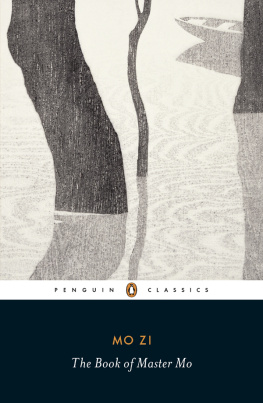
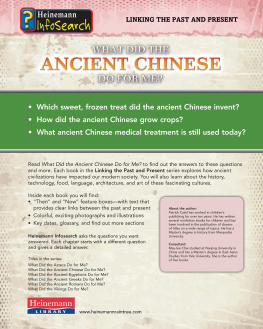
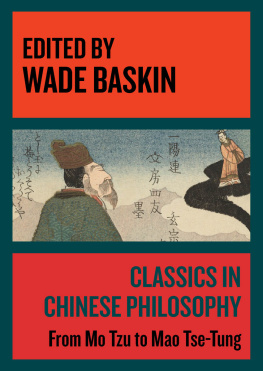
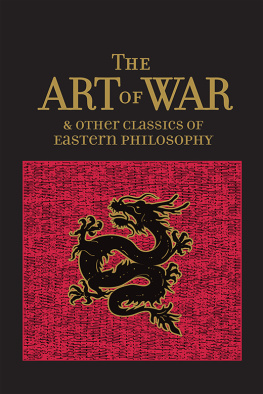

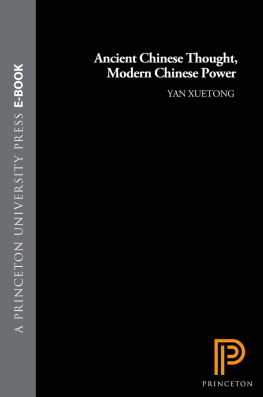
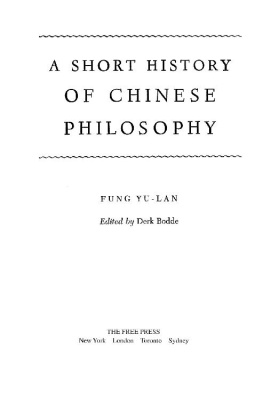
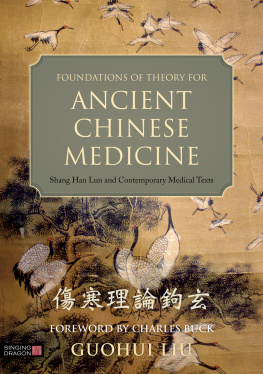
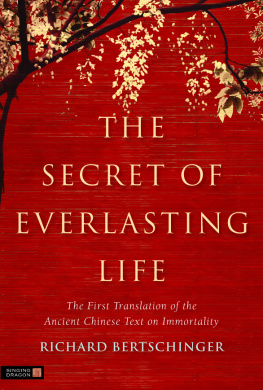
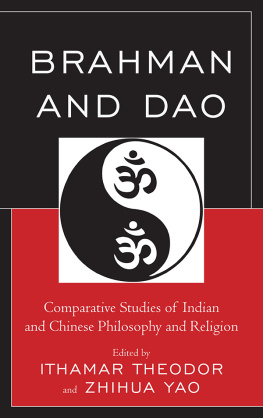





 CLASSICS
CLASSICS